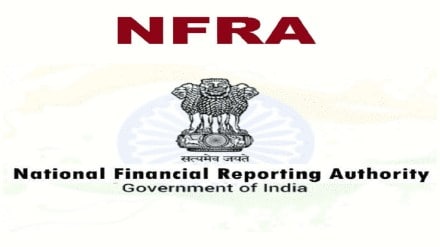By Madhuri Shahapure
Prior to Companies Act, 2013, auditing standards were issued by ICAI and were mandatory to be complied with by auditors performing statutory audits. Standards issued by ICAI are based on the corresponding standards issued internationally by the International Auditing and Assurance Standards Board (IAASB), with limited changes where ICAI believed such changes were required to cater to regulatory requirements or to reflect the financial reporting ecosystem in India. Such modifications from the corresponding International Standards on Auditing (ISAs) were narrowed down significantly in 2009. However, Standard on Auditing (SA) 600: Using the work of another auditor, was not aligned with the corresponding ISA due to certain reasons discussed below. The standard currently applicable in India was issued in 1995 and last updated in 2002. However, even the 2002 version was not entirely in sync with the corresponding ISA 600 that was revised by IAASB.
The National Financial Reporting Authority’s (NFRA) primary reason for proposing a revised Standard for group audits is to help safeguard public interest and investor protection, and the need for a standards framework that is robust enough to meet the challenges posed by complex financial systems today. The changes proposed indicate the reasons why the current standard does not achieve the objective providing assurance to the extent needed on consolidated financial statements, despite the principal auditor issuing a reasonable assurance report on the financial statements.
In terms of who is accountable in case of reporting on consolidated financial statements, India decided to differ from the global standards to the extent that it allowed the group auditor (or principal auditor, the auditor of the parent company in a group) to rely on the work done by component auditors (auditors of the others entities such as subsidiaries, associates and joint ventures within the group). There are certain procedures that the standard requires of the group auditor as it relates to assessing work of the component auditor and whilst there are some exceptional circumstances where the group auditor needs to do additional work, the standard is worded in way that is subject to wide interpretation and so the group auditor may not perform procedures as required under the international standards. In India, when one reads the auditors’ report on consolidated financial statements, one can find an innocuous paragraph tucked in, which says we have not audited specific proportions of amounts relating to revenue, net assets and cash flows that have been audited by component auditors. These on certain occasions can be significantly material numbers. Compared to this, ISA 600 requires the group auditor to take entire responsibility for reporting on the consolidated financial statements.
Now one could argue that it would not be as much of a problem as long as all auditors that audited the respective parent and component financial statements performed procedures and reported as mandated by the professional standards. This is where the second issue arises as to whether all auditors do infact perform work in a similar manner considering similar quality parameters. The international standard requires the group auditor to assess the competence of the component auditor before accepting an assignment where certain components are to be audited by another auditor. The Indian standard specifically states that as long as the component auditor is a chartered accountant registered with ICAI, there is no requirement for any further assessment of competence. This inherently limits the ability of the group auditor to assess the quality of work performed by the component auditor.
Apart from requiring the group auditor to assess the competence of the component auditor, the international standard allows the group auditor to access working papers of the component auditors, which helps them in assessing the nature, timing, extent of procedures as well as the conclusions drawn from having performed those procedures. The Indian standard again restricts such access, which brings us back to the concept of ‘reliance’ on the component auditor.
By aligning these requirements to the international standards, NFRA intends to ensure that there is accountability for the reporting done for consolidated financial statements.. The group auditor will necessarily need to take on entire responsibility for the audit and the component auditors will be subject to assessment of competence as well as the quality of work performed as demonstrated in their work papers, which the group auditor will now have access to. The proposed standard will significantly change the current scenario and make both the principal auditor and the component auditor accountable for the work being performed by them. Given the significant change in requirements, both corporates and auditors will need time to orient themselves with the changes and plan to implement them. This will require some time for transition and hopefully the regulator will allow a transition period along with issuing practical guidance to ensure that the changes proposed are put in practice effectively, so as to achieve the objective behind making the change.
The author is partner, Walker Chandiok & Co.
Disclaimer: Views expressed are personal and do not reflect the official position or policy of FinancialExpress.com. Reproducing this content without permission is prohibited.
